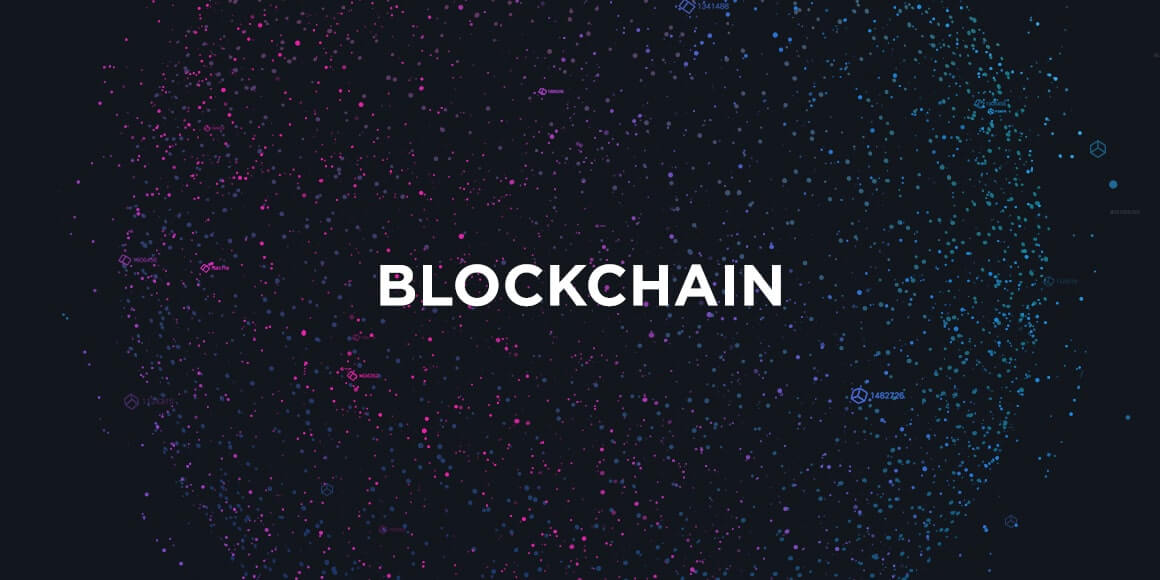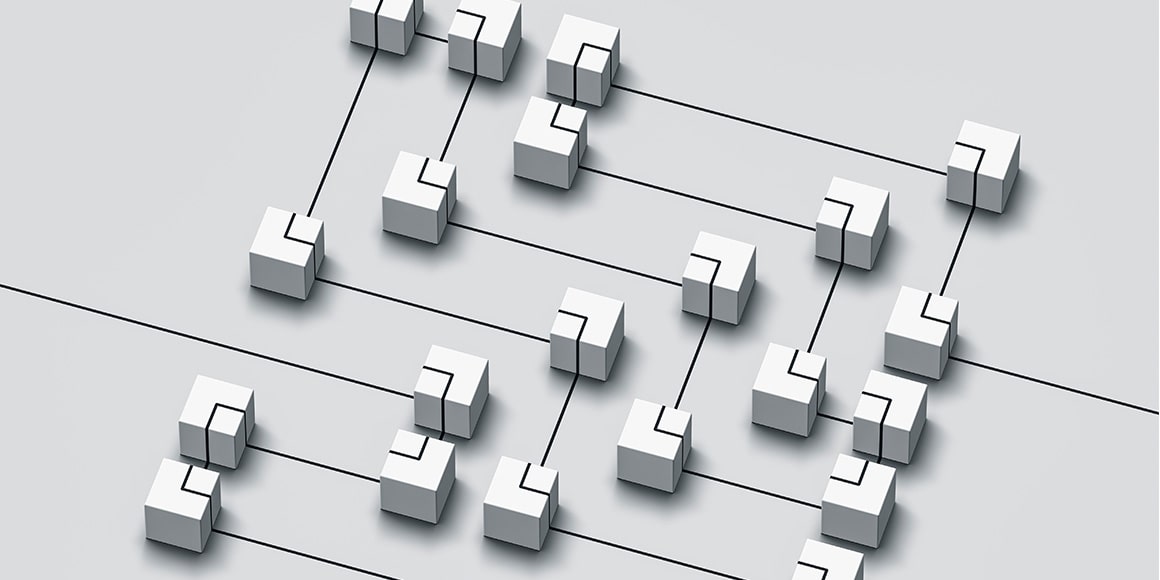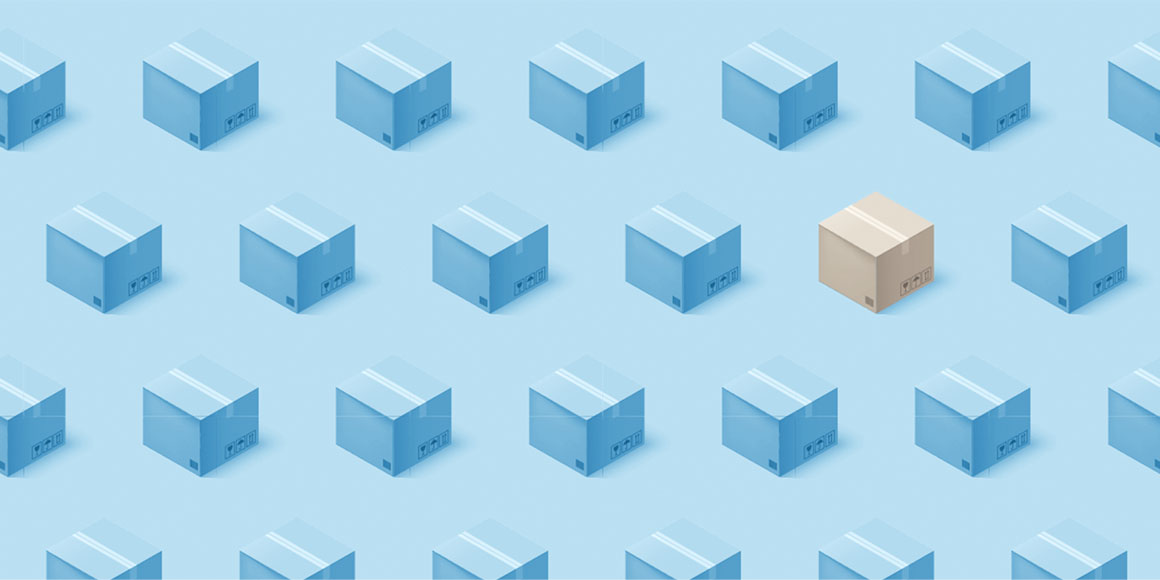
As blockchain continues to gain traction throughout many areas of business and industry, supply chain managers are taking notice.
In a recent survey commissioned by USPS® and carried out by SIS International Market Research, 66% of supply chain professionals said they were at least “moderately familiar” with the technology.[1]
Managers know that blockchain can offer great benefits throughout the supply chain, but they also know that being at the forefront of this technology comes with some risks—time and money spent.
To determine if blockchain is the answer for your supply chain, you have to ask the right questions. Think through the six questions below to get started.
Are multiple external parties involved in your logistics or supply chain? 1
The more external partners in your supply chain, the more complex and time-consuming processes become—and the harder it is to keep track of them.
Within complex, globalized supply chains, payments can take days, and tracing parts back to their source can be difficult. This can make it nearly impossible to confirm, for example, that ethical processes have been followed, or to pinpoint the exact source of materials.
If your supply chain is comprised of numerous parties across various locations, implementing blockchain may be very beneficial for your business, allowing you to keep track of all operations and transactions through a single, automatically updated ledger.
Blockchain can offer 100% traceability and guaranteed origins on products.[2]
If this is not currently an issue for your business, it’s still worthwhile to learn about the technology and stay ahead of the curve. Plus, the more your business grows, the more complex your supply chain may become. Keep reading to learn more about the benefits of blockchain.
Is there a need for a shared, common database between parties? 2
In supply chains involving multiple external parties, efficiently recording, sharing and verifying data can be challenging. With different parties using different databases, businesses often have to track down partners’ information one by one.
With blockchain, data is continuously synced across a common ledger. All partners view the same data at the same time, allowing transactions to be recorded and verified in near-real time. This makes it easy to provide all stakeholders with the assurance that best practices have been followed, compliance has been achieved, deliveries carried out as specified and so on.
82% of supply chain professionals are willing to share data with third parties and competitors at a level that would be necessary for successful blockchain development.[3]
If you’ve been finding it challenging to keep track of or verify such activities, blockchain may be a good fit—eliminating the need for error-prone, time-consuming paper-based systems and making it quicker and simpler to update data.
Do the parties have conflicting interests? 3
When multiple parties are involved in a supply chain, conflicting interests are often involved as well.
For example, your supply chain partners may have conflicting competitor relationships, industry standards or quality-control requirements. Differing priorities can complicate supply chain processes—while one supplier may be primarily concerned with speed and efficiency, another may be focused on keeping down costs.
Blockchain can help mitigate this friction, allowing for better end-to-end management and oversight. With a single, constantly updated database, it’s much easier to keep track of partners’ activities and transactions, gauge timing, and predict and mitigate issues.
58% of supply chain professionals said they expect blockchain to improve tracking.[4]
Do the parties mistrust each other? 4
A lack of trust among partners within your supply chain can make even the simplest processes complicated and stressful. If one party doesn’t trust another party to record data accurately—and not alter it for nefarious or self-serving purposes—the integrity of the entire supply chain can be compromised.
As one blockchain thought leader put it, “Blockchain is ultimately [about solving] a trust issue.”[5]
Blockchain offers end-to-end transparency, allowing all parties to view and confirm others’ activities. And because the ledger is immutable, meaning it cannot be changed once batches of data are uploaded and verified across the network, tampering or hacking is nearly impossible.
If you’re currently using third parties to help establish trust, blockchain could be a smart choice, eliminating the need for often-expensive intermediaries.
Are there differences in the rules that govern parties? 5
When different parties within a supply chain must adhere to different guidelines and regulations—whether self-imposed, governmental, environmental or industry-wide—conflict and confusion can ensue.
With traditional databases, it can be difficult and time-consuming to confirm various partners’ compliance and keep track of different regulations throughout the supply chain. Having to confirm compliance with individual parties can cause significant delays in moving products through a supply chain—especially when partners are spread out across the globe.
With businesses and consumers alike expecting speedy delivery of goods, the old way of recording and verifying information is becoming increasingly cumbersome. If you’re struggling to keep track of your partners’ compliance or often experience delays as a result of compliance issues, blockchain could be a good solve.
Do the rules governing transactions rarely change? 6
For blockchain to benefit a supply chain, the rules governing transactions and operations should not change often.
When using blockchain, a detailed set of rules is established by all in the network, creating a protocol by which transactions can be verified automatically—or rejected, if tampering, hacking or inaccurate data is apparent. This is what creates such high security within a blockchain; once a set of rules is established, the validity of uploaded data from every supply chain partner can be quickly and reliably validated.
If such rules cannot be established, blockchain would not be beneficial to your supply chain. But if your business is currently operating without specific transaction guidelines in place and you’re looking to achieve uniformity and higher efficiency, blockchain can be an ideal solution.
Implementing Blockchain in the Supply Chain
If you’ve determined that blockchain may be right for your supply chain, explore our in-depth digital experience, where you can dive into the key benefits of blockchain, learn more about the technical inner workings of the technology and explore a helpful use case.
Footnotes
keyboard_arrow_down- [1]2019 Survey, SIS International, 2019. Note: This survey was conducted with 50 logistics experts. arrow_right_alt
- [2]2019 Interviews of 10 Key Opinion Leaders, SIS International, 2019. arrow_right_alt
- [3]2019 Survey, SIS International, 2019. Note: This survey was conducted with 50 logistics experts. arrow_right_alt
- [4]Ibid. arrow_right_alt
- [5]2019 Interviews of 10 Key Opinion Leaders, SIS International, 2019. arrow_right_alt
 search
close
menu
search
close
menu



